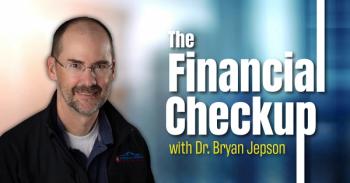
Should you handle your own retirement planning or work with a pro?
There are pros and cons to either approach
It’s not unheard of for a physician to handle his or her own financial and retirement planning. But just like a well-educated patient isn’t going to know everything about medicine, a well-educated doctor isn’t going to know everything about
Joel Greenwald, a doctor and a certified financial planner, recommends that anyone within five years of retirement spend the money — and it might cost you several thousand dollars — to get a second opinion from a financial professional. “The worst thing that will happen is they’ll tell you that you should be a financial planner, that you are doing things they wouldn’t have thought of,” says Greenwald. “On the other hand, tax laws change and to think that you’re going to be a good physician while remaining current on everything you should be doing in your financial plan — I would not be able to do that.”
He says the money spent is worth the peace of mind, and if they do find a flaw in your
Finding the right professional
If you are looking for financial planning advice, a good place to start is with someone that has the certified financial planner designation. These are professionals who have passed an exam and are all fiduciaries, meaning they are required to put your interests first (and not just sell you investments that make them the most profit).
Find several in your area then talk to each of them for 15 to 30 minutes, explaining your situation and hear what they have to say. The first meeting is usually free, so it’s a great time to find someone you are comfortable with.
Make sure you understand the fees involved and how they can help you reach your retirement goals before making a choice.
Newsletter
Stay informed and empowered with Medical Economics enewsletter, delivering expert insights, financial strategies, practice management tips and technology trends — tailored for today’s physicians.






